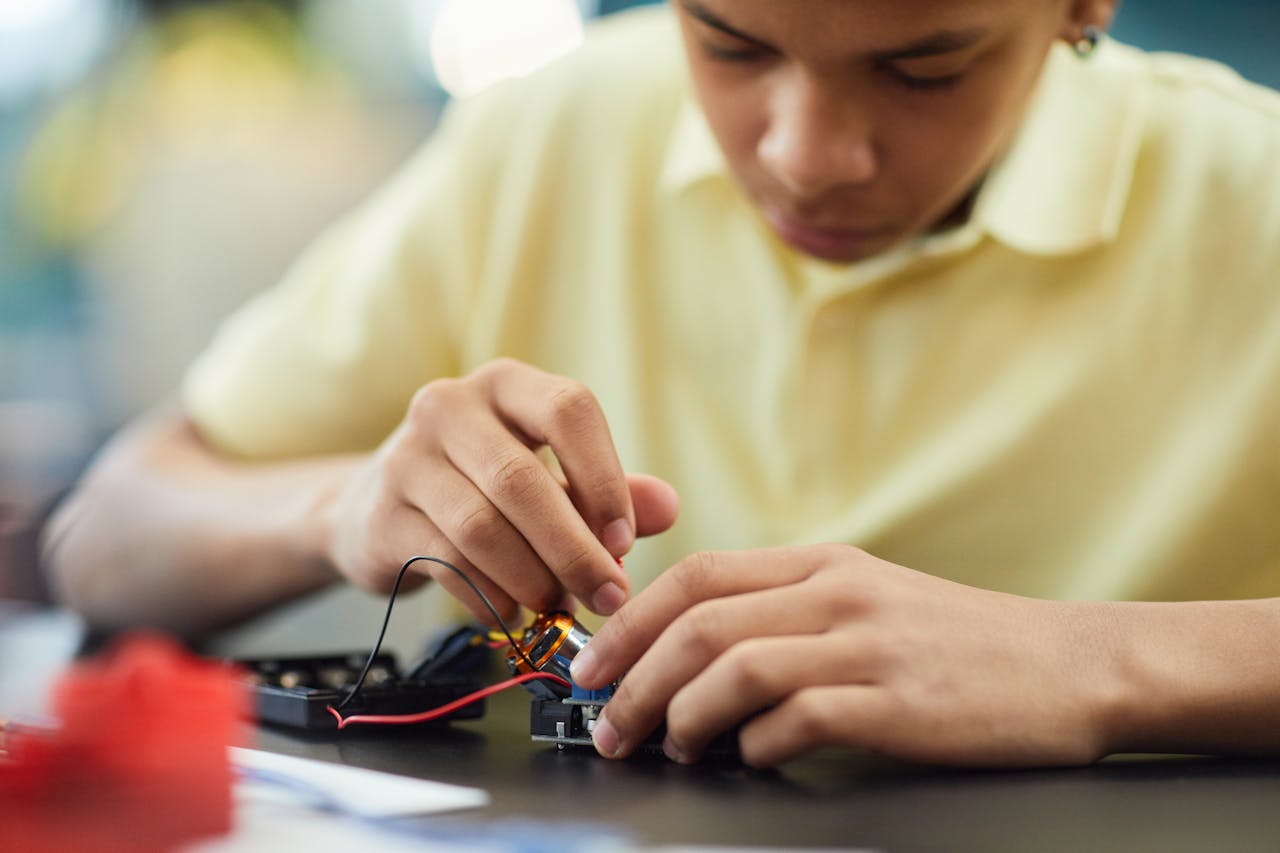Project-Based Learning: Engaging Students Through Hands-On Activities and Real-World Projects
Project-based learning (PBL) is a dynamic educational approach that empowers students to explore complex topics, develop critical thinking skills, and cultivate creativity through hands-on activities and real-world projects. By immersing students in authentic learning experiences that are relevant, meaningful, and collaborative, PBL fosters deeper understanding, engagement, and ownership of learning outcomes. Let's delve into the principles of project-based learning and explore how it can transform education and inspire lifelong learning.


Authentic Learning Experiences
Project-based learning emphasizes authentic learning experiences that connect classroom content to real-world contexts, issues, and challenges. Whether it's designing a sustainable city, conducting scientific experiments, or producing multimedia presentations, PBL projects enable students to apply academic concepts and skills in meaningful and relevant ways. By anchoring learning in authentic contexts, PBL fosters deeper understanding, relevance, and motivation among students.
Inquiry-Based Exploration
At the heart of project-based learning is inquiry-based exploration, where students actively investigate questions, solve problems, and seek answers through inquiry and discovery. PBL encourages students to ask meaningful questions, conduct research, analyze data, and draw conclusions independently or collaboratively. By engaging in open-ended inquiry, students develop critical thinking, problem-solving, and inquiry skills essential for success in school and beyond.
Collaboration and Communication
Project-based learning promotes collaboration and communication skills by encouraging students to work together in teams to plan, execute, and evaluate projects collaboratively. Through collaborative teamwork, students learn to communicate effectively, resolve conflicts, and leverage each other's strengths to achieve common goals. PBL projects often involve interdisciplinary collaboration, allowing students to integrate knowledge and perspectives from multiple subject areas and domains.
Creativity and Innovation
PBL cultivates creativity and innovation by challenging students to think creatively, generate ideas, and design solutions to real-world problems. Whether it's designing inventions, writing original stories, or producing multimedia presentations, PBL projects provide opportunities for students to express themselves creatively and showcase their unique talents and perspectives. By fostering a culture of creativity and innovation, PBL empowers students to become lifelong learners and innovators.
Self-Directed Learning and Reflection
Project-based learning encourages self-directed learning and reflection by giving students autonomy and agency over their learning process. PBL projects often allow students to choose topics, set goals, and design project plans according to their interests, preferences, and learning styles. Throughout the project cycle, students engage in ongoing reflection and self-assessment to monitor their progress, evaluate their learning outcomes, and identify areas for growth and improvement.
Real-World Application and Impact
One of the hallmarks of project-based learning is its emphasis on real-world application and impact, where students create tangible products, solutions, or artifacts that have relevance and value beyond the classroom. Whether it's presenting research findings to a real audience, implementing community service projects, or designing prototypes for social change, PBL projects empower students to make a meaningful difference in their communities and the world around them.


Empowering Students for Success
In conclusion, project-based learning is a powerful educational approach that engages students through hands-on activities, real-world projects, and authentic learning experiences. By emphasizing inquiry-based exploration, collaboration, creativity, and real-world application, PBL fosters deeper understanding, engagement, and ownership of learning outcomes among students. As educators embrace project-based learning as a pedagogical strategy, they empower students to become critical thinkers, lifelong learners, and active contributors to their communities and society at large. Through project-based learning, we can inspire the next generation of innovators, problem solvers, and change makers, and prepare them for success in an ever-changing world.





















